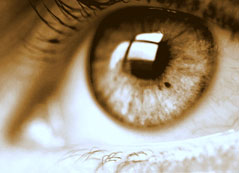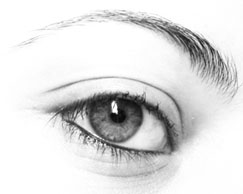For those who have lived a lifetime with glasses and contact lenses, the chance of clear vision is a dream come true. Laser eye surgery is now a standard option for many and can dramatically improve one's lifestyle.
In order to be eligible for laser eye surgery, candidates must be a minimum of 18 years old and have had stable vision for at least 12 months (although different clinics can have different rules). It is effective for both near and farsighted people and even those whose prescription includes astigmatism. Unfortunately there is not currently any effective corrective procedure to correct Presbyopia, the normal age-related reduction of vision that can occur when a person is in their mid forties. If this is your reason for wanting to undergo laser eye surgery, you will not be a suitable candidate at the moment; however, technological advances are continuously being made and there may be an effective corrective procedure available in the future.

The first step will be to see an optometrist who will refer you to a laser eye surgery clinic where they will determine which procedure is best for you. There are three types of laser eye surgery that are used to treat different conditions. Some patients may be suitable candidates for more than one different type, in which case it will be up to them to decide on the procedure that offers them the most benefits.
- Photorefractive Keratectomy (PRK) - the surface of the eye is ablated with a laser to reshape the cornea. A bandage contact lens is then placed on the eye to help speed up the epithelial regeneration that could take about 3-4 days. This treatment is best suited for those with thin corneas or those with extreme astigmatism. It is the most painful of the procedures with patients suffering with a longer period of downtime following the operation.
- LASIK - the surface of the eye is marked then a laser is used to cut a micro thin flap into the top layer of the eye. It is then folded back while the laser reshapes the cornea, then put back into place. The recovery time is shorter with patients reporting hardly any pain and being able to return to school or work 24-48 hours later.
- LASEK - the surface of the eye is loosened with a chemical compound then peeled back to allow the laser access to reshape the cornea. It is similar to the LASIK operation but offers an even shorter recovery time. There is an increase of discomfort immediately following the procedure.
The procedure will require that you do not wear contact in the week leading up to it. This is to allow your eyes to rest and limit the amount of dry eye you will experience. Upon entry to the clinic you will be given freezing drops and perhaps even a strong prescription painkiller such as Valium if you have opted for the more painful PRK procedure. Your eyes will already have been mapped and the laser set according to your specific prescription, so a quick check to make sure nothing has changed since your previous appointment is all that is required. Your eyes will be propped open one at a time and your eye prepared for the laser. This will require marking your eye with ink then cutting a flap or peeling back a flap, depending on the procedure you have chosen. During the actual laser session you will be asked to stare at a flashing dot. You will hear a loud clicking sound and smell a slight odour. Afterwards, the flap will be put back into place, or you will be fitted with a protective contact lens if it is a PRK procedure. The entire operation from start to finish takes approximately 5 minutes per eye and you will be able to stand up and walk away afterwards. Some people opt to have one eye operated on at a time and will, therefore, repeat the procedure exactly in one or two weeks.
In the hours immediately following the operation your vision will likely be very blurred and your eyes will be sensitive to light. It is best to put a cool mask on your eyes and relax in a dark room. The different laser procedures will result in different levels of post-operative discomfort but in all cases carefully following the after care instructions is essential to a successful recovery. Your eyes will be extremely dry and require refreshing drops numerous times a day for the following few months. Strong antibiotic drops will also be given to prevent infection, and steroid drops to increase healing. At your one week post-operative appointment, your doctor will remove the contact lens from PRK treatment, reduce your prescription of antibiotic and steroid drops, and check your cornea. Even though a healing haze often forms over the cornea, it rarely affects vision and usually clears up within in a few weeks.

It is common for doctors to perform an overcorrection of your prescription. This is due to the fact that the eye's natural healing process will lead to a slight regression over the course of the following weeks or months. In cases of extreme regression it may be necessary to return for an enhancement procedure. You will be required to wait a minimum of a year and your vision must not still be regressing at the time of enhancement. Some clinics include free enhancements in their initial cost, whereas others require a partial payment or even another full charge.
The results of laser eye surgery, while not guaranteed, are phenomenal, with patients having even strong prescriptions corrected to 20/20 perfection. It should be noted, however, that as Presbyopia is a natural degradation of vision, it may still occur even after laser correction surgery and although advancements are continually being made, there is not currently any effective corrective procedure.
The cost of laser eye surgery can vary slightly depending on the type of procedure you choose, the reputation and expertise of the surgeon, the facilities, and how much is included in the pre and post operative routine. Even the area in which the clinic is located plays a part in the price. A basic LASIK operation can start as little as $1,500 per eye, but with a reputable clinic that offers a lifetime of free enhancements, check-ups, and medication the cost could be as high as $3,500 per eye. That being said, is there any price you could put on the gift of sight?